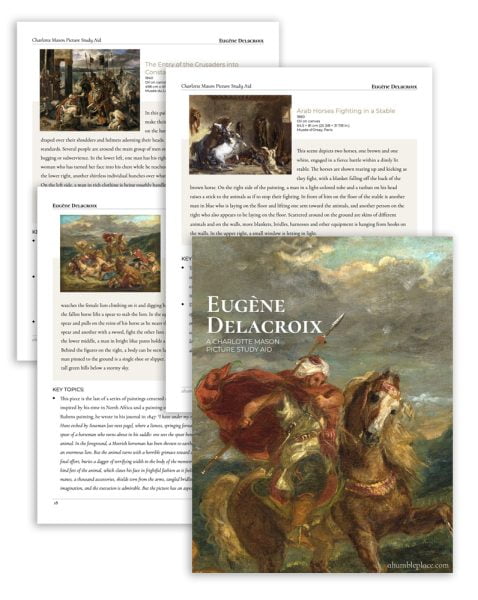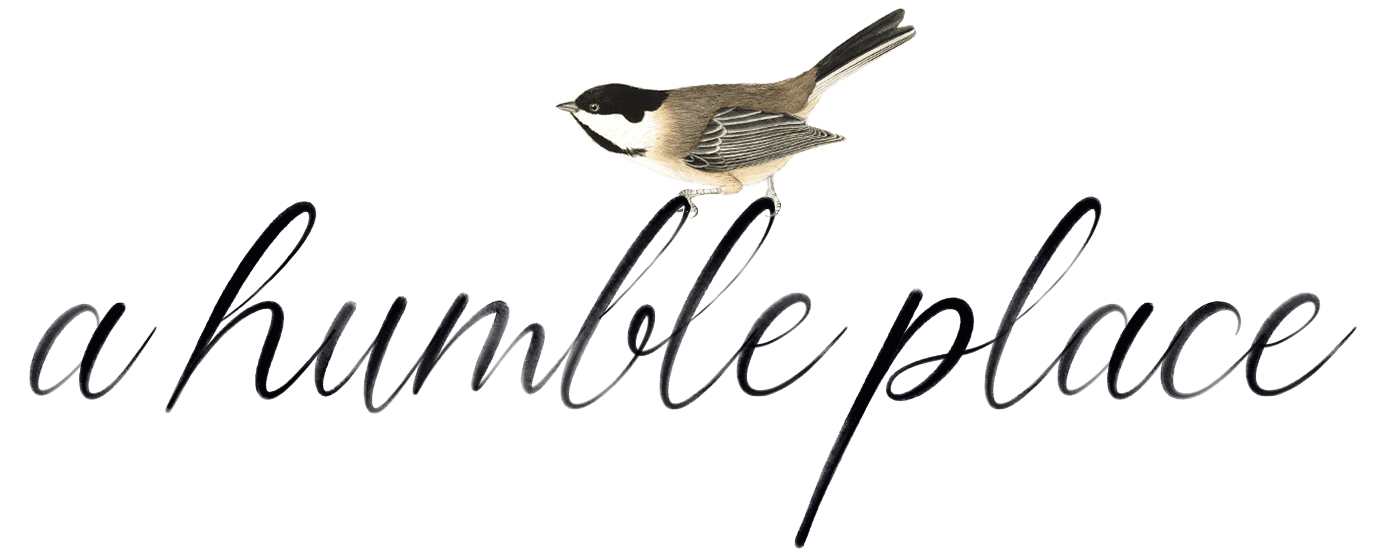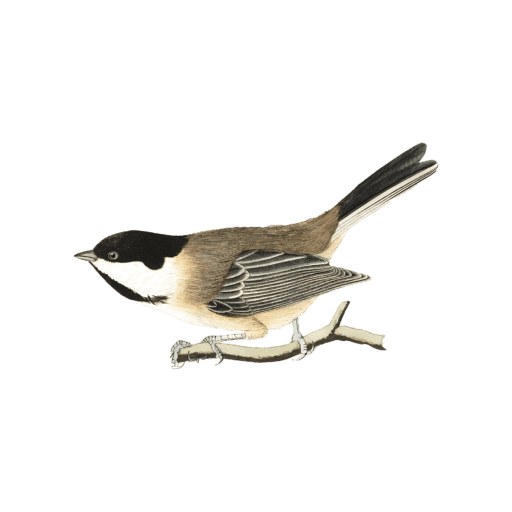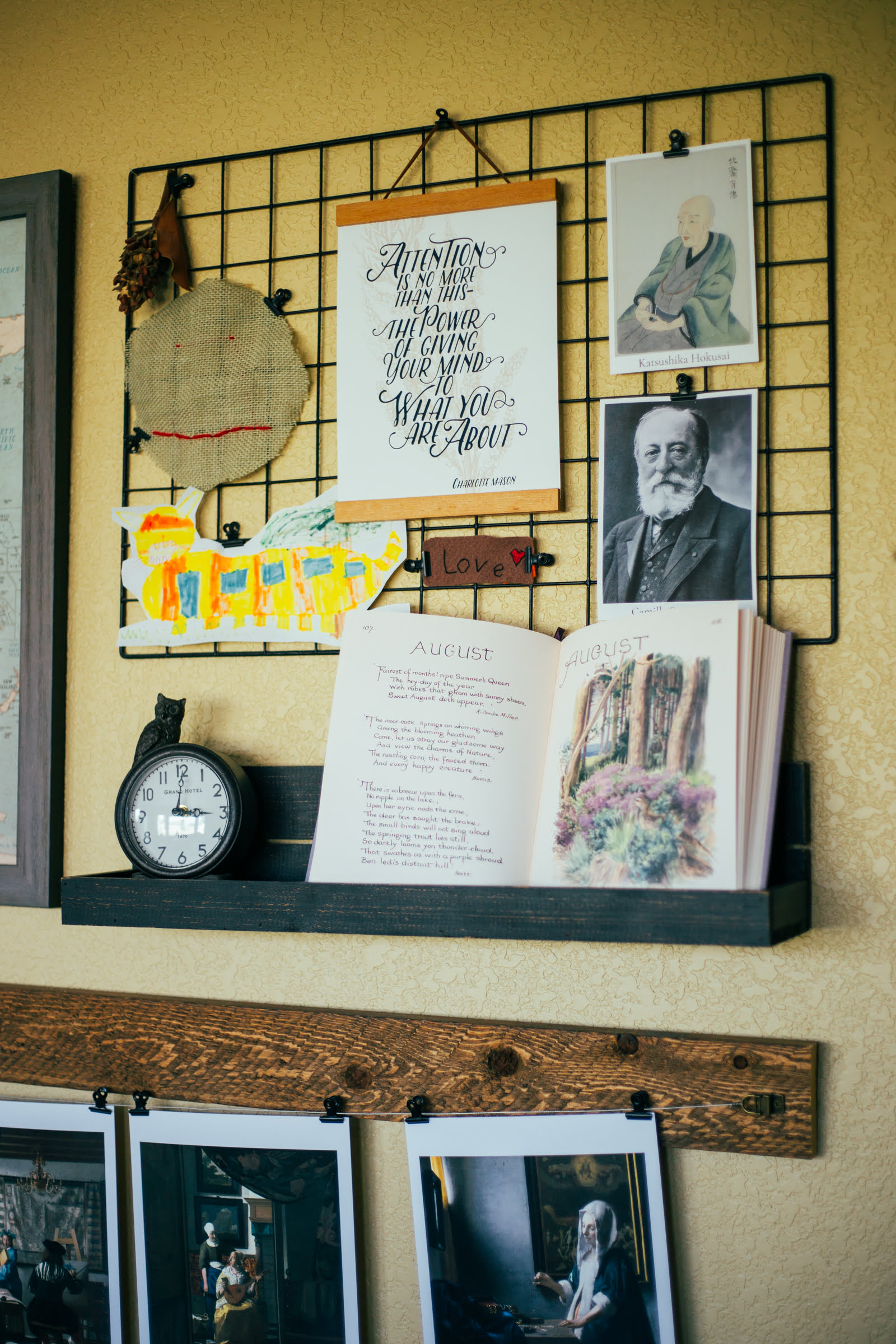A Lifestyle of Learning (+ a new printable!)
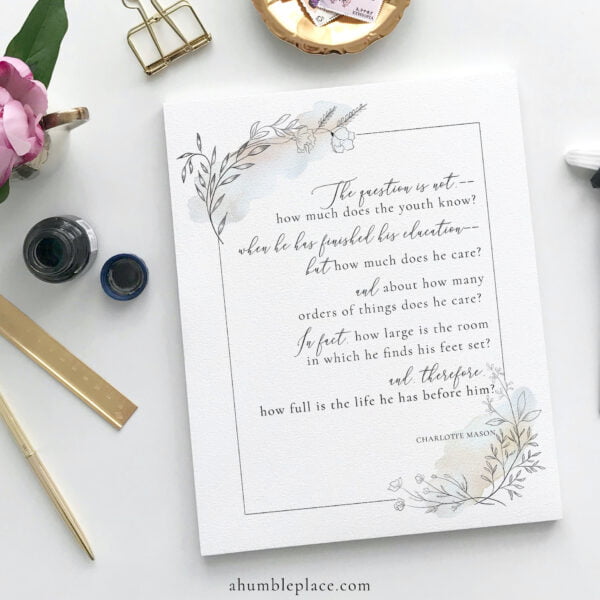
Life should be all living, and not merely a tedious passing of time; not all doing or all feeling or all thinking––the strain would be too great––but, all living; that is to say, we should be in touch wherever we go, whatever we hear, whatever we see, with some manner of vital interest. We cannot give the children these interests; we prefer that they should never say they have learned botany or conchology, geology or astronomy. The question is not,––how much does the youth know? when he has finished his education––but how much does he care? and about how many orders of things does he care? In fact, how large is the room in which he finds his feet set? and, therefore, how full is the life he has before him?
Charlote Mason, “School Education”
When I was first exploring educational philosophies as we prepared to homeschool our oldest child, there were several things that drew me to Charlotte Mason’s thoughts. I’ve written before that picture study was the pièce de résistance for me, but there were several other points that had me nodding my head, emphatically agreeing in my mind as I read her words. One of these was the idea that education is a “life.”
From the moment they entered the world, my kids were learning. They were taking everything in, absorbing, relating, observing. As they grew and became more mobile, they explored and learned about the world and things around them in other ways, especially touching (and gumming) everything.in.reach. And not only were they learning about the objects and spaces in their surroundings, they were also learning about the people, including how those people related to them which aided them in knowing how to relate to those people.
Though none of this learning was the reading, writing, ‘rithmetic kind, it was still a form of learning, and learning in all of its various forms never stops. Once my kids began their formal homeschooling journey, the learning didn’t end at the close of their first lesson time. They are always learning. I am always learning. This is why her statement that education is a life resonated so deeply with me. We are always learning.
Going with this theme of “life,” she also wrote that we should have a “living” education. Specifially about this she wrote:
The mind, like the body, requires quantity, variety and regularity in the sustenance offered to it. Like the body, the mind has its appetite, the desire for knowledge. Again, like the body, the mind is able to receive and assimilate by its powers of attention and reflection. Like the body, again, the mind rejects insipid, dry, and unsavoury food, that is to say, its pabulum should be presented in a literary form. The mind is restricted to pabulum of one kind: it is nourished upon ideas and absorbs facts only as these are connected with the living ideas upon which they hang. Children educated upon some such lines as these respond in a surprising way, developing capacity, character, countenance, initiative and a sense of responsibility.
Charlotte Mason, “Towards a Philosophy of Education”
She also wrote that “information is not education,” meaning that dry facts and dull ideas from textbooks and other sources are not the seeds from which a true education is grown. We present a wide feast of living ideas not only to educate but also to show our children that the world is a wonderfully interesting place and worthy to learn about. We inspire them to become life-long learners for no other goal than that they have a desire to learn.
Today in the shop, I’m offering a new quote design with the second part of the above quote, arguably one of Ms. Mason’s most popular sayings. You can find either a PDF download or have a print shipped to you in the shop!
